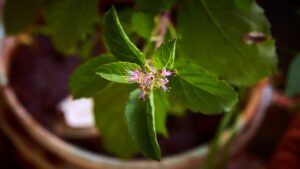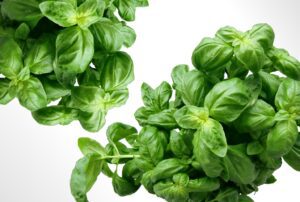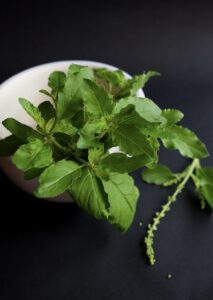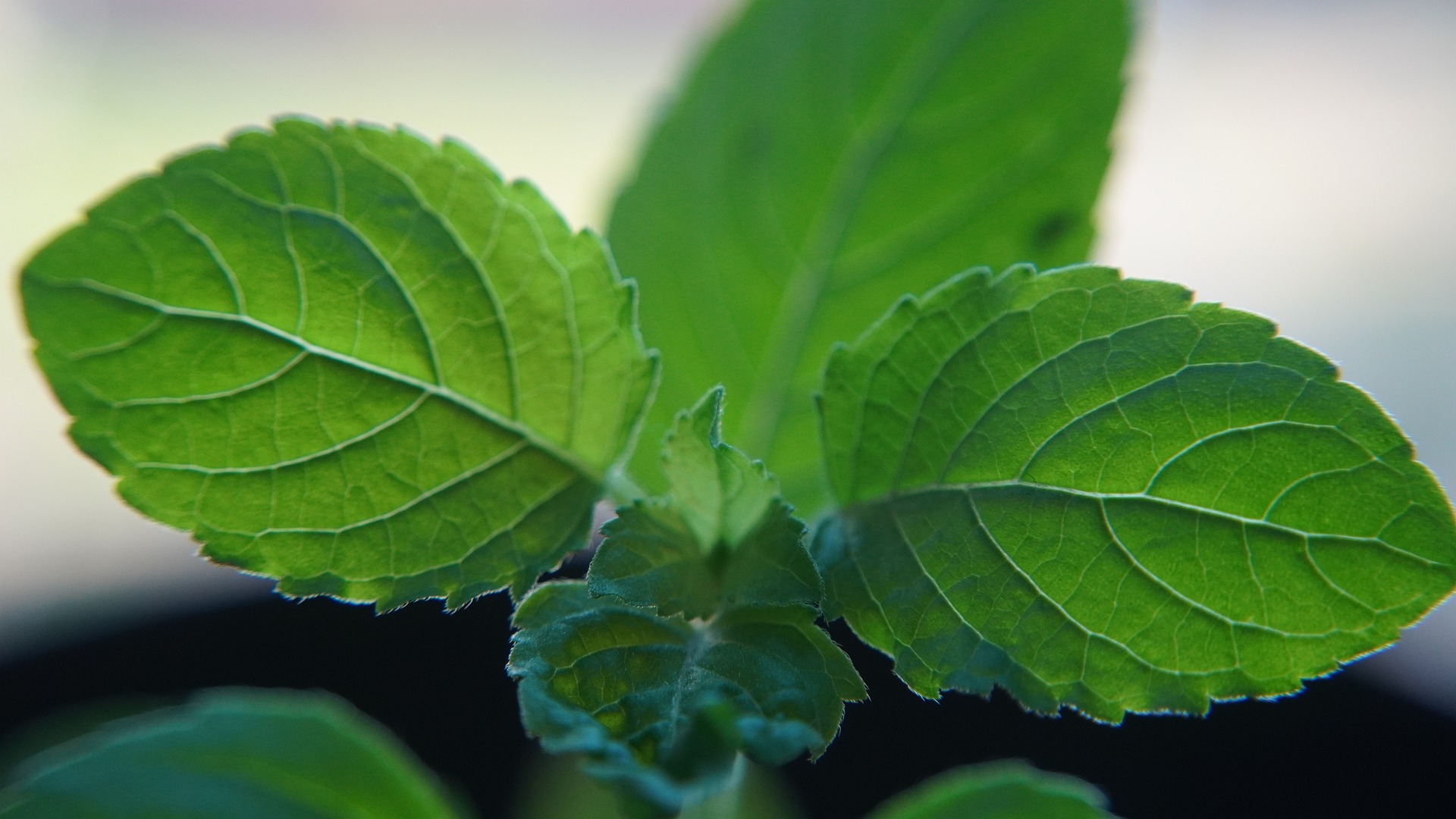TULSI / HOLY BASIL
Tulsi History / Tulsi in Hinduism
Tulsi, also known as Holy Basil, Ocimum tenuiflorum (scientific name) is a sacred plant and is considered to be a goddess in itself in Hinduism. The plant is native to the Indian subcontinent and is often grown in the courtyard of Hindu homes and temples. It is believed to have been first mentioned in the ancient Indian text, the Rigveda, which is believed to have been written between 1500-1200 BCE.
The leaves of the Tulsi plant are highly fragrant and are used in various traditional remedies for their medicinal properties. They are also used in religious rituals and Ayurvedic medicines.
The plant is a perennial herb and grows up to a height of 30-60 cm. It has hairy stems and leaves with a strong aroma. The leaves are dark green in color and are ovate in shape. The flowers of the Tulsi plant are purplish-white in color and bloom in the months of October to November.
The plant is easy to grow and requires well-draining soil and partial sunlight. It is important to water the plant regularly and provide adequate fertilization for optimal growth.
In Hindu mythology, Tulsi (Avtar of Goddess Lakshmi) is considered to be the consort of the god Vishnu and is highly revered in Hindu culture. It is also believed to have spiritual and purifying properties.

Tulsi benefits/ Tulsi leaves benefits / Holy Basil benefits
- Tulsi has a number of medicinal properties that can help improve overall health.
- It has anti-inflammatory and anti-bacterial properties that can help boost the immune system and protect against common infections and diseases.
- Tulsi is a natural stress buster and can help reduce anxiety and improve mental clarity.
- It has powerful antioxidant properties that can help fight free radicals and prevent cellular damage, which can lead to chronic diseases like cancer and heart disease.
- Tulsi can also help improve digestion and reduce symptoms of indigestion and bloating.
- Regular consumption of tulsi can help regulate blood sugar levels, making it beneficial for people with diabetes.
- It can also help lower blood pressure and improve cardiovascular health.
- Tulsi is a natural detoxifier and can help cleanse the body of toxins and waste products.
- It can also help improve skin health and promote a clear, glowing complexion.
- Regular consumption of tulsi can also help promote healthy hair growth and prevent hair loss.
Uses of Tulsi / Uses of Holy Basil
- The leaves and seeds of tulsi are used in cooking to add flavor to dishes.
- The leaves are used in tea and other beverages for their refreshing and calming effects.
- Tulsi oil is used in aromatherapy for its calming and relaxing effects.
- The leaves are used in natural skincare products for their anti-aging and acne-fighting properties.
- Tulsi is often used in religious rituals and is considered to be sacred in Hinduism.
- The leaves are used in natural insect repellents and insecticides.
- Tulsi is used in Ayurvedic hair care products for its ability to promote hair growth and prevent hair loss.

Tulsi Vivah / Tulsi marriage
Why is Tulsi Vivah done ?
The celebration of Tulsi Vivah symbolizes the victory of good over evil and the importance of devotion and purity in one’s life. It is believed that observing this festival brings blessings, prosperity, and spiritual upliftment.
When is Tulsi Vivah / marriage done ? or On what day is Tulsi Vivah / marriage done ?
Tulsi Vivah is celebrated on the 11th day of the bright half (Shukla Paksha) of the lunar month of Kartik. It marks the marriage of the Tulsi plant to the Hindu god Vishnu or his avatar, Lord Krishna.
The ceremony involves the preparation of a mandap (wedding altar) and the performance of various rituals and puja (worship) by the bride and groom. This includes the offering of various items such as flowers, fruits, and sweets to the Tulsi plant, which is considered to be a manifestation of the goddess Lakshmi.
The ceremony is followed by a feast and the distribution of prasad (blessed food) to all the attendees. In some regions, the marriage ceremony is followed by a procession of the bride and groom around the village.

TULSI LEAVES | TULSI LEAF | TULASI |SHRI TULSI | INDIAN BASIL | TULSI HERB | MINT TULSI
ALSO READ : INDIAN ASTROLOGY
ALSO READ : LEARNINGS FROM BHAGAVAD GITA










